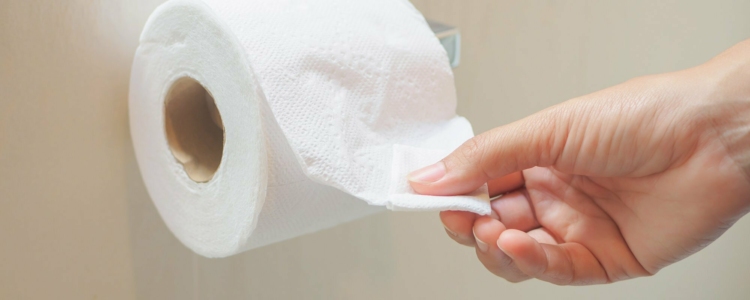Tip #1 – Understand traveller’s diarrhea
What is traveller’s diarrhea?
The possible causes of this phenomenon are numerous. The stress inflicted on the digestive system by jet lag or the consumption of unusual foods can be enough to trigger gastric and intestinal discomfort. However, traveller’s diarrhea is often caused by exposure to local bacteria, parasites or viruses that the immune system of a foreign visitor is not prepared to combat. This infectious disease is typically transmitted through contaminated water or food, but it can also spread through contact with an infected person.
What are the symptoms associated with traveller’s diarrhea?
The symptoms of traveller’s diarrhea depend on the bacteria, parasite or virus responsible for the condition. They include:
- Diarrhea (by definition, more than 3 unformed stools in 24 hours)
- Bloating
- Abdominal cramps
- Nausea
- Vomiting
- Fever (generally below 38.5 °C or 101.3 °F)
As a rule, traveller’s diarrhea is not a cause for concern. Symptoms typically disappear after a few hours or days without any treatment. However, taking medication or seeking a medical consultation might be advisable in more concerning cases, as we will see later on.
How long does traveller’s diarrhea last?
The duration of traveller’s diarrhea varies depending on several factors, including the severity of the infection and the overall health of the affected individual. Generally, symptoms appear a few hours to a few days after consuming contaminated food or water and can last two to four days. However, in more severe cases, symptoms may persist for up to a week or even longer. It is crucial to stay hydrated during this time and to consult a doctor if symptoms do not improve after a few days or if they worsen.
In some instances, traveller’s diarrhea may not resolve as quickly as expected, leading to potentially serious complications. Therefore, special attention is necessary to manage health and avoid these undesirable outcomes.
Is traveller’s diarrhea contagious?
Traveller’s diarrhea often raises concerns about its contagiousness. While the illness is primarily caused by consuming contaminated water or food, it is important to note that it can also spread between individuals. The viruses and bacteria responsible can linger on the skin and transmit through direct contact. An infected person can contaminate others, especially if they touch their face or mucous membranes after coming into contact with contaminated surfaces. Therefore, maintaining good hygiene, such as frequent handwashing, is crucial to prevent the transmission of traveller’s diarrhea.
Which areas are at risk for traveller’s diarrhea?
Travellers can experience gastrointestinal symptoms regardless of their destination, but the risk is higher in areas where sanitation and hygiene conditions are poor.
High-risk zones for contracting traveller’s diarrhea
- Developing countries in Central and South America
- Mexico
- Africa
- The Middle East
- Asia
Moderate-risk zones for contracting traveller’s diarrhea
- Eastern Europe
- South Africa
- Certain regions in the Caribbean
Low-risk zones for contracting traveller’s diarrhea
- Northern and Western Europe
- Australia
- New Zealand
- Japan
- United States
- Canada
Tip #2 – Visit a travel health clinic
Make an appointment at a travel health clinic as soon as possible, ideally at least two weeks before your departure abroad, as some vaccines may take some time to reach their full efficacy.
Travel health clinic: a service offered at your Accès Pharma chez Walmart
No need to look far! To get seen promptly at a travel clinic and avoid waiting in the store, schedule your appointment online.
Is there a vaccine for traveller’s diarrhea?
There is a vaccine for traveller’s diarrhea, which prevents the illness in just over one in five people. It is administered orally, in two doses taken a week apart. The vaccine might be recommended in certain situations and for individuals at high risk of complications. To determine if the traveller’s diarrhea vaccine is a suitable option for you, consult your pharmacist affiliated with Accès Pharma.
What are the prescribed treatments for traveller’s diarrhea?
Your travel health professional can provide a prescription for certain medications and health products for preventive use. They will determine the best options and provide you with a protocol to follow based on your age and health condition. Recommended treatments for traveller’s diarrhea include:
—Oral rehydration solutions (e.g., Gastrolyte®)
—Bismuth subsalicylate (e.g., Pepto-Bismol™), which works by reducing acid secretion in the stomach
—Loperamide (e.g., Imodium®), which slows intestinal transit
—Antibiotics, such as ciprofloxacin (most commonly prescribed) or azithromycin, which directly combat pathogenic microorganisms
We will explore the basic principles of using classes of medications later on. However, be sure to strictly adhere to the recommendations provided by your pharmacist or doctor.
Tip #3 – Take all necessary precautions to avoid traveller’s diarrhea during your trip
By following a few simple principles and refraining from consuming risky drinks and foods, you can avoid traveller’s diarrhea and fully enjoy your trip.
Choose where you eat wisely
Home-cooked meals are usually safer, followed by restaurant food. Buffets and street food are considered the riskiest. Of course, it all depends on the sanitary and hygiene practices followed during preparation. Use your judgment! When in doubt, it’s better to abstain.
Wash your hands frequently
Washing your hands with warm tap water, if done thoroughly and with soap, is an effective method to eliminate germs. Some studies suggest that this simple practice can reduce the risk of contracting traveller’s diarrhea by about 30%. If you don’t have access to running water and soap, use an alcohol-based hand sanitizer. Remember to clean your hands often, especially before meals.
Avoid risky drinks and foods
The golden rule: “Boil it, cook it, peel it, or forget it!”
To avoid contact with germs causing traveller’s diarrhea, you’ll need to make certain sacrifices and completely steer clear of risky drinks and foods:
- Tap water or any untreated water
- Ice, as well as juices or milk made from concentrate or powder that might have been prepared with untreated water
- Any bottled water or drink that was not unsealed before your eyes
- Raw fruits and vegetables rinsed with untreated water unless they can be peeled
- Fresh foods that are not cooked, boiled, or peeled, particularly:
- Meats
- Shellfish
- Raw seafood and fish
- Cold cuts
- Unpasteurized dairy products (milk, cheese, butter)
- Any cooked food that has cooled; dishes should be consumed piping hot, immediately after cooking
- Any food left at room temperature
How to purify water while travelling
Commercially bottled (sealed) water is the safest option for travellers. However, if you do not have access to it, you can treat water in several ways:
- Boil the water for at least 15 minutes
- Purify the water using sodium dischloroisocyanurate tablets, available in pharmacies (e.g., MicroPur®, Aquatabs®)
- Use a water purification system, which you can purchase from certain sporting goods and outdoor stores (e.g., Katadyn®)
Avoid traps!
It takes only a small amount of water containing pathogens to contract traveller’s diarrhea. In addition to the precautions already mentioned, do not overlook these:
- Beware of cocktails and blended drinks! It’s easy to forget that the ice or juices may have been made with untreated water.
- Do not brush your teeth with tap water! A handy tip to avoid forgetting: keep a bottle of commercially available water ready to use near your toothbrush.
- During showers, baths or swimming, avoid getting water into your mouth.
- Avoid contact with a sick person! Traveller’s diarrhea can be transmitted from person to person.
Tip #4 – What to do if you get traveller’s diarrhea
The cornerstone of treating traveller’s diarrhea is maintaining proper hydration. While staying hydrated is usually sufficient, taking medication may be necessary in more concerning cases.
Avoid pitfalls!
Regardless of the severity of your symptoms, it’s crucial to maintain or restore the body’s hydration by drinking plenty of fluids. In mild cases, water is usually sufficient. Of course, make sure to drink safe water.
Oral rehydration solutions for traveller’s diarrhea
If water is not tolerated and in moderate or severe cases of traveller’s diarrhea, an oral rehydration solution (e.g., Gastrolyte®), which contains essential minerals for the proper functioning of the body and aids in water absorption, can be invaluable. You can obtain this product from a pharmacy, available in bottles or as sachets of salts that are easy to carry in your luggage and can be dissolved in safe water as needed.
Homemade solutions: a last resort
Homemade oral rehydration solutions are not recommended due to the difficulty in precisely achieving the effective and safe concentrations of mineral salts and glucose. They should be used with caution and only when you are unable to access a commercial product.
Use medications as prescribed
Before you leave, ensure you thoroughly understand how to use the different medications you have in your travel kit. If you have any doubts, ask your pharmacist or doctor for advice on how to handle any potential issues. Always follow the instructions provided with each medication and adhere strictly to the recommendations of your pharmacist or doctor.
What to do in case of mild traveller’s diarrhea
Diarrhea is considered mild if it is tolerable and does not interfere with planned activities. Mild symptoms usually resolve on their own and do not require any special treatment. However, if the need to use the restroom becomes too frequent or if you don’t have easy access to facilities (such as during a journey), these anti-diarrheal medications can be used:
- Bismuth subsalicylate (e.g., Pepto-Bismol™)
- Loperamide (e.g., Imodium®)
Antibiotics are not recommended for mild diarrhea.
What to do in case of moderate traveller’s diarrhea
Diarrhea that is intense enough to interfere with planned activities is considered moderate. For self-treatment of these cases, the use of loperamide (e.g., Imodium®) as monotherapy, meaning taken alone, is recommended. Antibiotics are not recommended for moderate diarrhea unless certain medical conditions are present, such as kidney or heart failure.
*Why limit antibiotic use for traveller’s diarrhea?
Any use of antibiotics comes with an increased risk of severe diarrhea caused by the bacterium Clostridium difficile or by multi-resistant bacteria. Additionally, it contributes to the overall rise of bacterial resistance. Therefore, antibiotics should only be considered when initial interventions fail or if symptoms worsen.
What to do in case of severe traveller’s diarrhea
Severe diarrhea is incapacitating and completely prevents planned activities. Any occurrence of dysentery (passage of bloody diarrhea) is considered severe. In the case of severe symptoms, it’s time to use the antibiotics prescribed to you. If not done already, you can also use loperamide (e.g., Imodium®) in conjunction with the antibiotics.
However, be cautious: in cases of bloody diarrhea or fever, anti-diarrheal medications are contraindicated. Consult your healthcare professional for more information.
Start eating again as soon as possible, with caution
Nutrient absorption is disrupted during an episode of traveller’s diarrhea, but contrary to popular belief, complete fasting is not recommended.
Early reintroduction of foods does not appear to be harmful; on the contrary, nutritional intake can aid in the recovery of the affected individual.
While waiting for the gastrointestinal system to stabilize, it’s advisable to avoid high-fat foods, which can upset digestion and worsen diarrhea. A diet of easy-to-digest foods is recommended, such as:
- Rice
- Pasta
- Couscous
- Well-cooked carrots
- Other easily digestible foods
Tip #5 – Learn to recognize emergency situations
Although traveller’s diarrhea is usually a temporary and mild condition, complications should be taken seriously. Dehydration can have severe consequences, potentially leading to death.
When to consult a doctor for traveller’s diarrhea
The following symptoms indicate the need to seek urgent medical attention:
- Severe diarrhea that hasn’t improved after 24 to 48 hours of antibiotic treatment
- Presence of blood in the stools
- High fever (39 °C or higher)
- Intense abdominal pain
- Profuse sweating
- Persistent vomiting
- Signs of severe dehydration
- Dry mouth
- Reduced sense of thirst
- Decreased sweating
- Reduced skin elasticity
- Decreased urine output and unusually dark yellow urine
- Dizziness
- Confusion
- A worrying general condition
Caution: travellers to malaria-prone regions
The symptoms of malaria can resemble those of traveller’s diarrhea. If you are travelling to a region of the world affected by this disease and experience symptoms accompanied by fever, consult a doctor immediately. Be sure to inform them of your recent travel history to rule out or swiftly address this diagnosis.
Individuals at risk of developing complications
Special care should be taken with individuals who are more vulnerable, as dehydration may occur more rapidly or may be harder to detect in:
- Children, especially infants and toddlers
- Elderly individuals
- People with chronic illnesses
- Individuals with weakened immune systems
- Pregnant women
Be vigilant and have a great trip!
There are many things to consider before your departure and during your journey, but by understanding the illness, exercising caution and knowing what to do in case of an issue, you can make the most of your travel experience. Schedule an appointment with your affiliated pharmacist at Accès Pharma chez Walmart and benefit from professional and personalized travel health guidance.
The information provided does not replace the advice of a healthcare professional and does not constitute professional liability for affiliated pharmacists at Accès pharma. At the time of publication, the information presented was accurate but remains subject to change.





